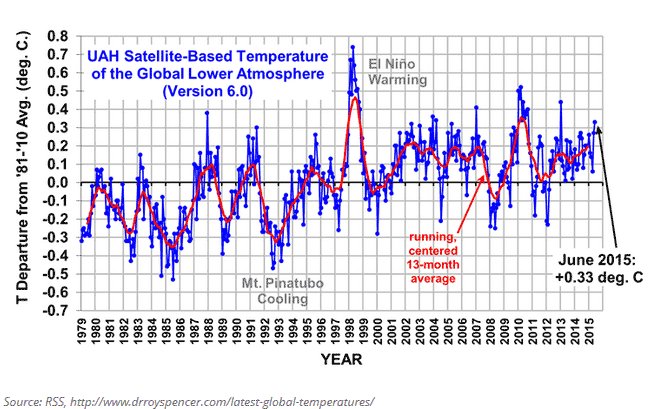Below we look at some of the most interesting recent news stories on the Green supply chain and sustainability.
Lego Begins Long Search for Non-Oil Based Plastic
Iconic toy maker Lego is on the search for a new plant based material to replace the ABS plastic now used to make its famous bricks.
But it will be quite an effort - Lego recently estimated the R&D will take some 15 years.
The effort of course is to reduce the company's carbon footprint, much of which is driven by the oil-based plastic the company has been using since 1963. It was another material before that, at the Danish company that can trace its roots back to 1932.
"The ultimate prize would be for us not to notice one brick from the other," said Tim Guy Brooks, senior director of environmental sustainability, meaning a comparison between current bricks and those non-plastic versions in the future.
But that effort won't be easy. Lego tolerances are very tight, at four thousandths of a millimeter, something ABS can handle well. Plant-based plastics - not so much, at least currently.
The sharp decline in oil prices and thus traditional plastic costs present another barrier - the goal of the new material of course also has to pass financial muster. Will consumers pay more for "green" Legos? As usual, that is the multi-billion question.
Coca-Cola recently announced a prototype of a new soda bottle it said was made entirely from plant materials - but it is likely to be years before it becomes commercially available, and as at Lego costs will be an issue, especially if oil prices stay low.
2014 Warmest Year on Record, National Oceanic and Atmospheric Administration Says
A new report from the National Oceanic and Atmospheric Administration says once again 2014 was the warmest year on record.
Highlights from the State of the Climate 2014 report include:
Greenhouse gas levels reach new highs: "Major greenhouse gas concentrations, including carbon dioxide, methane and nitrous oxide, continued to rise during 2014, once again reaching historic high values," NOAA notes in a statement, adding that "Atmospheric CO2 concentrations increased by 1.9 ppm in 2014, reaching a global average of 397.2 ppm for the year. This compares with a global average of 354.0 in 1990 when this report was first published just 25 years ago."
Record temperatures near Earth's surface: "Four independent global datasets showed that 2014 was the warmest year on record," NOAA's statement adds. "Europe experienced its warmest year on record, with more than 20 countries exceeding their previous records," including Mexico. Only Eastern North America, the report adds, was the single major world region "to experience below-average annual temperatures."
More Arctic warming, with low sea ice extent: "The Arctic experienced its fourth warmest year since records began in the early 20th century," NOAA said. "Arctic snow melt occurred 20 to 30 days earlier than the 1998-2010 average. The Arctic minimum sea ice extent reached 1.94 million square miles on September 17, the sixth-lowest since satellite observations began in 1979. The eight lowest minimum sea ice extents during this period have occurred in the last eight years."
All this and more is likely to play heavily into a global climate agreement scheduled to be reached at the UN Climate Summit this December in Paris, where the stakes will be high.
Meanwhile, Others Claim 22 Years of No Warming, Despite Peculiar Data Revision
Over the last several years, there have been numerous reports of a so-called "hiatus" in global warming, which will move into its 22nd year in September.
That according to Michael Bastasch writng recently on The Daily Caller web site.
This has been difficult for many climatologists to explain, as it is significantly inconsistent with most computers models that predicted rising temperatures over the period. That has led to dozens of theories about what is happening, such as the studies suggesting that atmospheric heat is somehow being trapped in "deep oceans."

Since September 1994, University of Alabama in Huntsville's satellite
temperature data has shown no statistically significant global warming
trend. For over 20 years there's been no warming trend apparent in the
satellite records and will soon be entering into year 22 with no warming
trend apparent in satellite data - which examines the lowest few miles
of the Earth's atmosphere.
However, the NOAA itself decided to do something about this irritating data by what appears to be arbitrarily
revising its past data to show that - "poof" - the hiatus no onger exists.
"Newly corrected and updated global surface temperature data from NOAA's [National Centers for Environmental Information] do not support the notion of a global warming 'hiatus,'" wrote NOAA scientists in their study released in June
This convenient revison of course has brought howls of protest from some quarters.
"There's been so much criticism of NOAA's alteration of the sea surface temperature that we are really just going to have to use the University of East Anglia data," said Pat Michaels, a climate scientist with the libertarian Cato Institute, referring to another set of data that has not been revised.
"I don't think that's going to stand the test of time," Michaels said of NOAA's recent adjustments.
So is the haitus still real? That subject at least is hardly settled.
Any reaction to this week's Green supply chain news roundup.Let us know your thoughts at the Feedback button below.

|